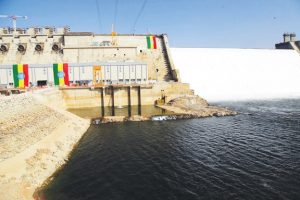BY DARGIE KAHSAY
Ethiopia is striving to fulfill universal energy access to its people across the country with grid and off-grid connections. With this goal, the country is investing in energy production from diversified clean energy sources. Though the country’s energy production is dominated by energy sources produced from hydro power, currently solar, wind and geothermal sources are also taking significant share in the sector.
As majority of the country’s population is living in rural villages with scattered settlement, in addition to investing in huge mega projects to produce energy for grid connection, the country also invests in expanding off-grid energy sources. This helps the country to expand clean energy sources for the rural population mainly by expanding solar energy production for the scattered villages, which shows improvements and helps the rural population to get access to clean energy with manageable cost.
To expand the access to energy from the main grid connection, huge mega projects are under construction with the capacity of doubling the current production. In this regard, the Grand Ethiopian Renaissance Dam (GERD), Africa’s largest dam, is on the way of completion which started its early production this year. The construction of this giant dam with nearly 6,000 MW production capacity has reached over 84 percent of the construction and scheduled to be completed by 2025. In addition, other mega projects from hydro, wind and geothermal sources are under construction.
With its investments in clean energy production from renewable energy sources, not only for its consumption, but also it becomes a source of energy for neighboring countries. So far, Sudan and Djibouti are buying energy from Ethiopia while Kenya is waiting for the completion of a huge grid connection between the two countries.
In addition to the huge investments in mega power plants, Ethiopia also gives due focus to off-grid energy production to produce clean energy for the scattered rural settlements. Over 80 percent of the country’s population lives in rural areas and these rural villages are scattered settlements, which make it tough and costly to provide energy access from the main grid. Considering this reality, Ethiopia expands its energy production sources by focusing on energy production from solar energy.
According to Ministry of Water and Energy, during the 2021/22 budget year over 1.3 million households’ get energy access from solar system. Speaking to Ethiopian Press Agency, Minister of Water and Energy, Engineer Habtamu Itefa (PhD) said that during the past budget year was successful year in energy production, adding especially the year was productive year in energy production from off-grid energy sources. He noted that during the budget year, around 1.3 million houses get energy from off-grid solar energy projects across the country. For him, the year was successful in developing energy production from off-grid sources that helps to expand access to energy for the rural population.
According to Engineer Habtamu, in addition to the off-grid joint projects, single-house purpose solar energy production is expanding which helps every household to produce energy from solar system for own purpose. He added that, efforts continued to develop this effort of energy production from the off-grid source so as to achieve the country’s universal energy access.
“During the 2021/22 budget year, around 1.3 million houses get energy access from off-grid energy sources mainly from solar energy,” Minister Habtamu stated adding “in addition to the off-grid projects installed to accommodate small villages, single house service solar energy is developing in the rural areas of the country.” He added that these efforts would continue in this budget year so as to expand the energy access to the people.
Researches indicated that, Engineer Habtamu stated, hydro and solar takes the lion share of Ethiopia’s energy potential. Hence, in addition to the huge investments to increase energy production from the hydro power source, Ethiopia’s effort to increase energy production from the solar source show significant progress and helps the country to provide energy access to the scattered villages of the rural population.
Engineer Habtamu praises the efforts of households that strived to produce energy from solar system for their own consumption using simple production materials. Understanding the peoples’ efforts in producing solar energy and as the demand is increasing, government gives due focus in monitoring the importing materials so as to import standard and quality materials to produce solar energy.
Parallel to promoting and expanding energy production solar source, according to the Ministry, efforts are underway to produce energy to scattered villages from water source by designing small plants out of the grid connection. For Minister Habtamu, especially in Western and South Western part of the country, there are Rivers suitable to produce energy. Hence, he argued that it is important to invest in these rivers to produce energy for consumption to limited areas without connecting to the main grid.
Engineer Habtamu further reiterated that most river basins of Ethiopia are suitable for energy production. Even the small rivers are suitable to produce limited energy that can help to the local people without connecting from the grid source.
THE ETHIOPIAN HERALD WEDNESDAY 26 OCTOBER 2022





